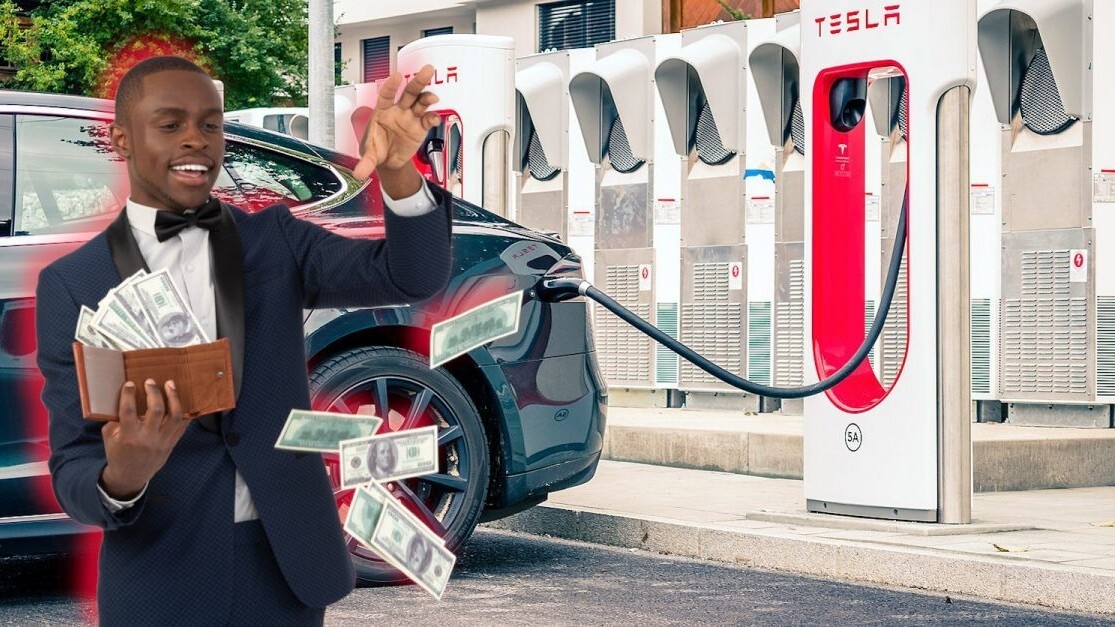
Welcome to SHIFT Basics, a collection of tips, explainers, guides, and advice to keep you up to speed with mobility tech.
Compared to gasoline cars, electric vehicles are cheaper to run. The main reason is that, per unit of energy, it costs less to power an EV than a gasoline car.
In brutal, inelegant terms, electricity is cheaper than gasoline. How much cheaper though, depends on your energy supplier, where you live, the energy mix, and even what time of day you charge.
So how are we supposed to figure out how much it costs to charge our EV?
If you were trying to figure out how much it costs to fill up your gasoline car, you’d simply take the size of the tank in gallons or liters, and then multiply that by the cost of fuel, also in gallons or liters.
The principle for calculating how much it costs to charge your EV is pretty much the same — except the units are different.
Time for the math
In this example, we’re going to calculate how much it costs to charge your EV at home. The cost of using public charge points varies a lot, so it’s best to check with each provider to figure how much that would cost.

Anyway, the first step is to figure out how much you pay per kilowatt hour (kWh).
This is as simple as taking how many kWh of energy you used over your last billing period, and dividing it by how much you paid for that bill. This will give you a unit cost per kWh.
Here are some figures from my friend’s recent energy bill to help get our heads around this.
1. According to the bill, my friend used 1600 kWh of electricity over their last billing period — for my friend, they get billed every quarter.
2. This cost them $320 (£230).
3. Now, we want to take that cost and divide it by the kWh used. In this case, that’s $320 divided by 1600, which gives us a kWh unit cost of 20 cents (about 14 pence).
Cost to charge an EV
1. Take this unit cost (20 cents), and multiply it by the size of your EV’s battery. That should give us a relatively accurate idea of how much it costs to fully charge your car.
2. Let’s say we’re charging the Polestar 2, which has a useable battery capacity of 75 kWh.
3. At 20 cents per kWh, fully charging the P2 would cost us $15.00 (£10.80) — that’s assuming your system is 100% efficient.
It all sounds pretty simple, right? Well, it kind of is! But there are some caveats to be aware of.

Pro tips
Depending on your electricity tariff, you might also pay admin fees or standing charges that are charged at a flat rate per day. Ignore these costs when you’re calculating your kWh unit cost, they don’t change the more electricity you use.
Your tariff might also charge you a different kWh unit cost depending on the time of day. In some cases, it’s cheaper to charge your EV overnight, check your tariff to see if this is the case.

It’s also important to be aware that when charging your EV, some electricity won’t make it to the battery due to losses in the system. No EV charger is 100% efficient.
If your EV charging system is 90% efficient, you’ll actually have to buy more electricity to completely charge your EV. Accounting for a 10% loss, in our Polestar 2 example, we’d need to spend closer to $17.00, for a full charge.
What’s more, we must also remember that EV batteries have a “useable” rating, and a “total” size rating. It makes most sense to calculate the charging costs using the “useable” rating.

EV makers ringfence a part of the battery for safety, and to take care of other power demands from the car’s ancillary components. The “useable” rating is more directly related to how much power the car’s motors have access to. So it makes sense to use this figure.
If this is all still a bit complicated, many home EV chargers and energy suppliers now provide apps or hardware monitors that tell you how much energy you’re using in real time, and how much it costs you.
These home energy monitors can take a lot of the guess work out of it, so check in with your home’s EV charging point maker or energy supplier to see if these are options.
But if you’re looking for an even simpler way to think about it, in researching this article, one figure kept coming up. That it costs about half as much to charge an EV as it would to fill the tank on an equivalent gasoline car.
If you can’t handle (or can’t be bothered with) the math hopefully that’s something you can get your head around. Happy charging, folks.
Do EVs excite your electrons? Do ebikes get your wheels spinning? Do self-driving cars get you all charged up?
Then you need the weekly SHIFT newsletter in your life. Click here to sign up.
Get the TNW newsletter
Get the most important tech news in your inbox each week.




